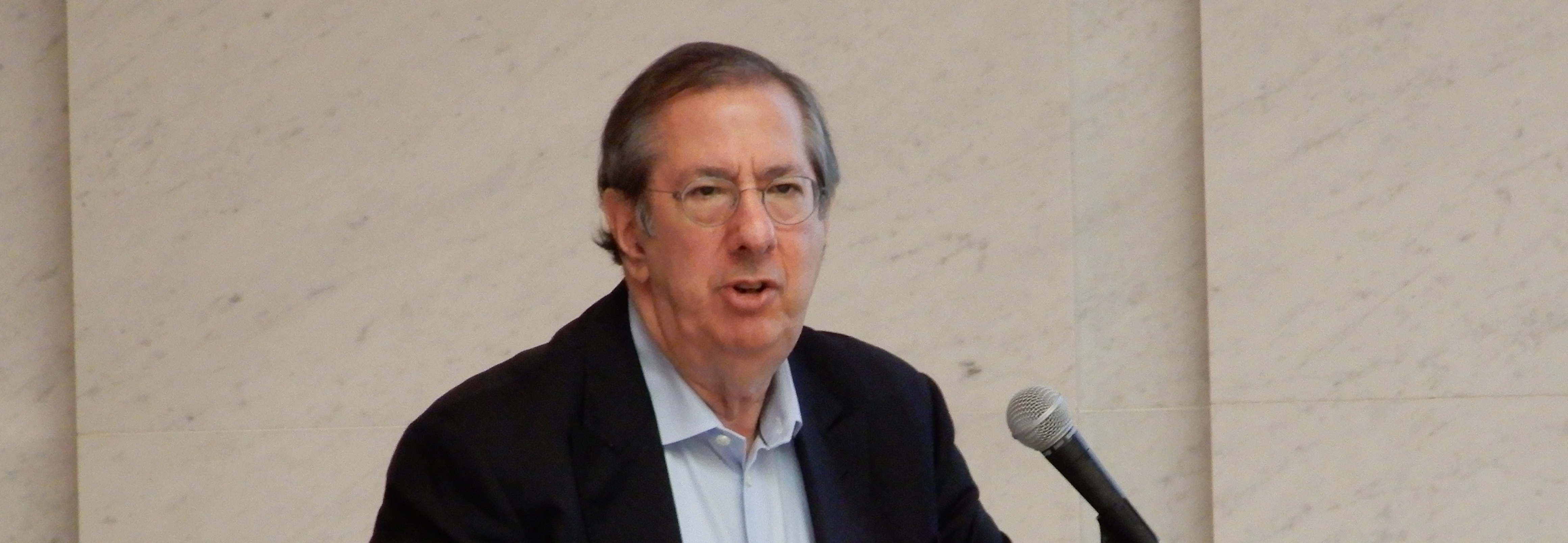
Seminar Issues and Challenges for Japan’s Economic Future Richard Katz, Weekly Toyo Keizai
April 24, 2025
Tokyo
Keizai Koho Center (KKC) invited Mr. Richard Katz, a journalist specializing in Japan and a Special Correspondent for Weekly Toyo Keizai, to speak on “Issues and Challenges for Japan’s Economic Future.” The event was attended by 45 executives of KKC member corporations.
The Impact of Tariffs of the Trump Administration and Japan’s Countermeasures
Mr. Katz observed that President Trump’s policies appear to be driven more by emotion than strategic planning. President Trump seems to believe that the U.S. can maintain a trade balance and revitalize domestic manufacturing as long as other countries do not take advantage of the U.S. through free trade. However, Mr. Katz argued that this is not the case in reality, asserting that the tariff policy will ultimately lead to unfavorable consequences for the U.S. After President Trump imposed reciprocal tariffs on April 2, the U.S. dollar declined due to concerns over a potential economic recession and waning investor confidence. Mr. Katz emphasized that the only significant constraints on President Trump’s policies are the economic hardship they may impose on his supporters and the negative reaction from financial markets. He also predicted that if the U.S. proceeds with tariff measures, Japan’s GDP growth rate could decline by 2% over the next five years—or 3% when factoring in the broader impact from other countries. Given these potential risks, he argued that Japan should proactively collaborate with other nations to implement necessary countermeasures.
Breaking the Current Deadlock Requires Entrepreneurship and Open Innovation
Mr. Katz described rapidly growing start-ups that have been in business for less than five years as “gazelles”, highlighting their ability to introduce innovative ideas that drive significant productivity improvements. In contrast, he referred to traditional major corporations as “elephants” and suggested that collaboration between gazelles and elephants could accelerate industrial transformation.
However, he emphasized that for such collaboration to succeed, the growth of start-ups and entrepreneurship must be encouraged He also pointed out that personal guarantees required for fundraising at small and medium-sized enterprises hinder progress. Additionally, he noted that approximately 90% of Japanese government support for corporate research and development is allocated to large corporations, emphasizing the need for more balanced and effective policies.
He also highlighted that a wage system without disparities encourages entrepreneurs to take risks, reinforcing the importance of the equal pay for equal work principle. He concluded that innovation is not merely about technology but rather a mindset—one driven by rich imagination and the ability to identify solutions to problems that other companies overlook. He expressed his hope for the revitalization of Japanese enterprises through such approaches.
